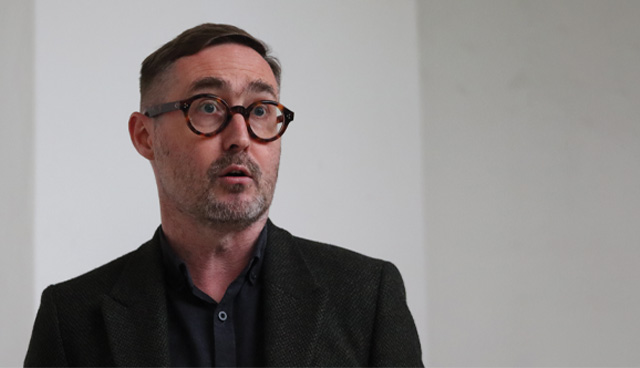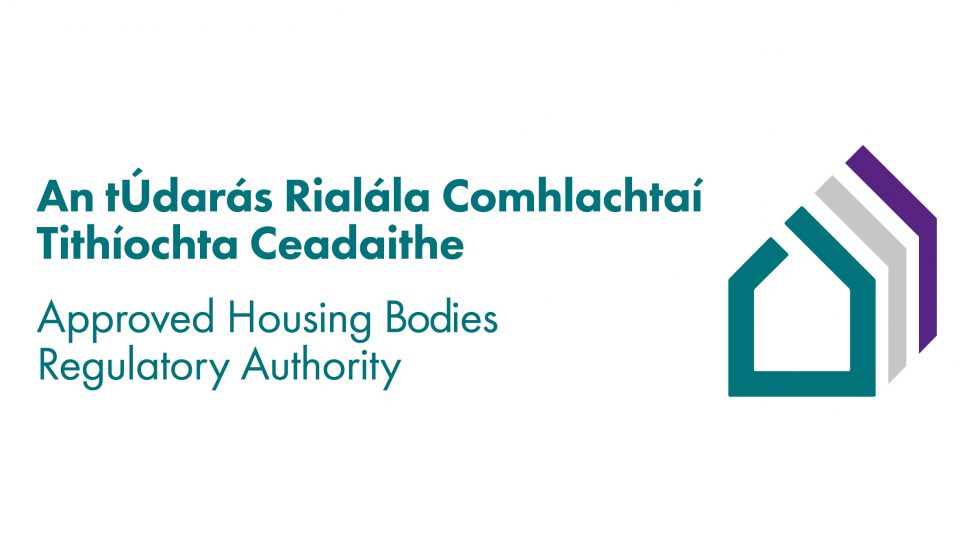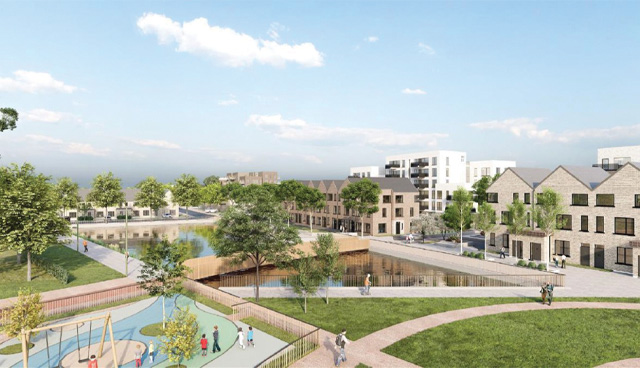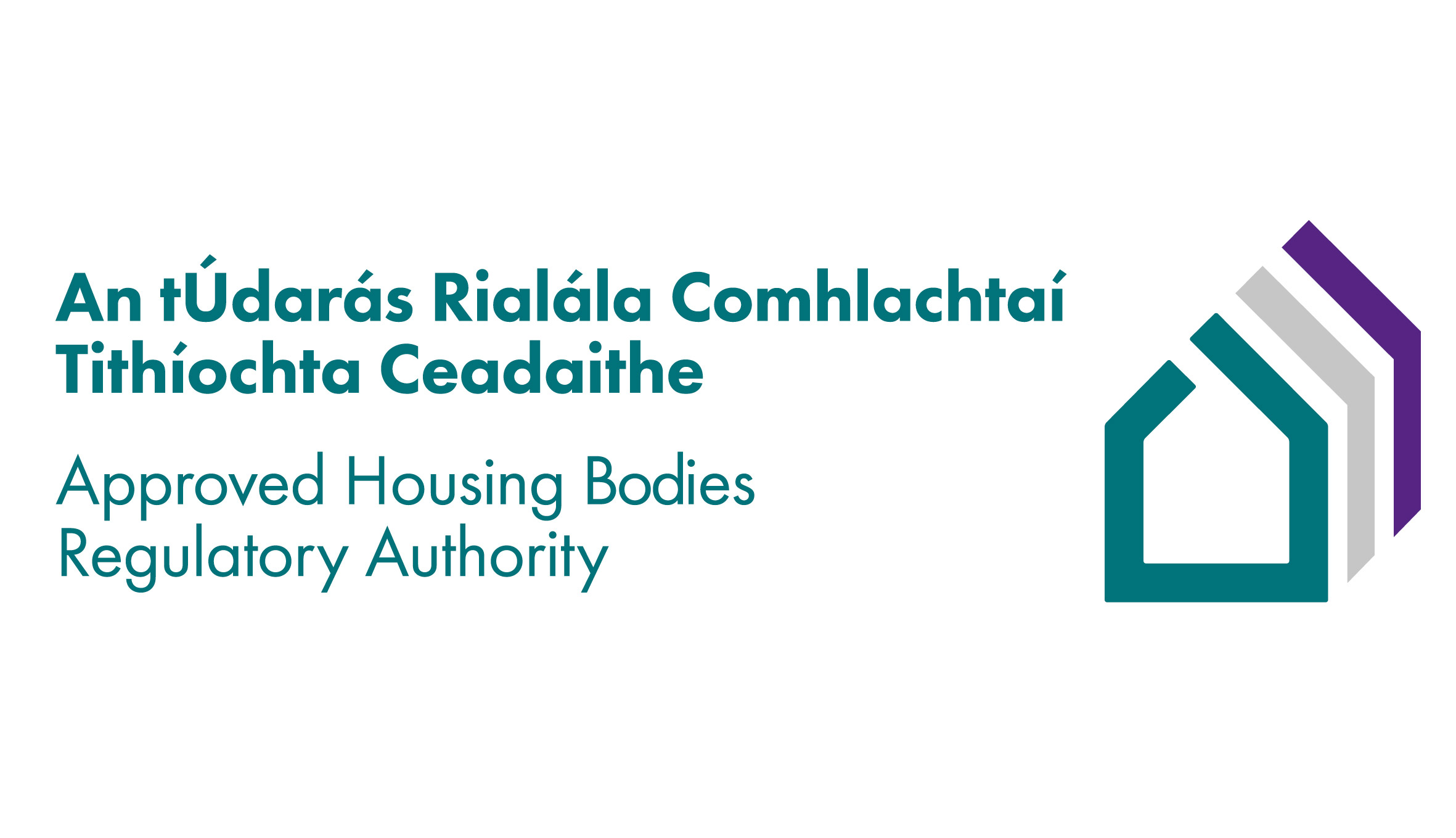
Now is the time to prepare your AHB for statutory regulation
1st June 2021
Time to think beyond the house: A critical response to the climate and biodiversity crises
1st June 2021Eoin Ó Broin TD: A paradigm shift
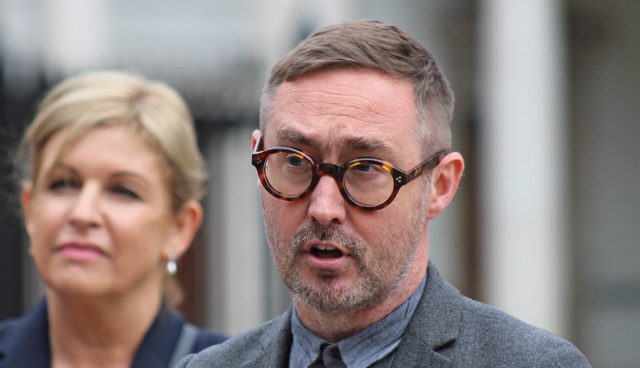
Credit: Sinn Féin
Following the formation of the Fianna Fáil/Fine Gael/Green Party coalition government in July 2020, Sinn Féin has operated as its chief opposition, quickly identifying housing as its opponents’ Achilles heel. Ciarán Galway sits down with Sinn Féin housing spokesperson Eoin Ó Broin to discuss ‘generation rent’, homelessness and international investment.
Even before authoring Home: Why Public Housing is the Answer in 2019, the Sinn Féin TD had distinguished himself as one of his party’s leading policymakers. Framed by a virtual backdrop of the Cité Radieuse in Marseilles — Le Corbusier’s most famous modernist residential building — Eoin Ó Broin affirms that it acts as a reminder that “public housing should be the best housing”.
Contextualising the current phase of Ireland’s housing crisis, the lead opposition housing spokesperson highlights several significant changes. Firstly, throughout the February 2020 general election, housing became the predominant concern for the electorate. “That general public attentiveness to the issue of housing and the desire and demand for change in housing is still very much there and is growing,”
Ó Broin asserts.
Secondly, house prices and rents have continued to increase. A consequence of what he suggests are “government housing policy failures”, including “underinvestment in social housing; no delivery of affordable housing to rent or to buy to date; and the wrong kinds of fiscal policies in terms of what kind of private sector investment is attracted”.
Thirdly, the Covid-19 crisis has had a dual impact on housing. The first is that emergency Covid legislation, introduced by former Housing Minister Eoghan Murphy, banning evictions, notices to quit and rent increases led to “the most dramatic decrease in family homelessness that we have seen since the start of that crisis”. The second is that the shutdown of the construction industry has produced a significant reduction in supply.
‘Generation rent’
While acknowledging that the house crisis is, in part, generational, Ó Broin emphasises that groups other than ‘generation rent’ — the locked-out generation of first-time buyers — must also be considered.
“The largest group of people most negatively affected by housing policies over the last number of decades are clearly younger people. Younger people are less able to buy, they’re paying higher rents, they’re waiting longer for social housing and therefore, there is very clearly an age element to this. We can’t discount that.
“However, the point I would stress is we have a very large number of people, for example, who lost their family homes due to repossession following the crash of the Celtic Tiger. We have a very significant number of people, including people in their 50s and early 60s, who have lost their family homes due to relationship breakdown. There are people who are trapped in small, inappropriate Celtic Tiger apartments, in negative equity and haven’t been able to trade up because of the situation they are in. Of course, we still have groups of other people who have always been marginalised in our housing system: the long-term homeless; Travellers; people with disabilities etcetera,” he insists.
Homelessness
Meanwhile, as a consequence of emergency government legislation in the early phase of the Covid crisis, the number of people accessing emergency accommodations and presenting to homeless services has continued to decline since Q4 2019. The Department of Housing, Local Government and Heritage’s Homeless Quarterly Progress Report for Quarter 1 suggests that at 8,060 individuals, this is the lowest number of homeless individuals recorded since June 2017.
When introduced by Eoghan Murphy, the policy intervention successfully stemmed the flow of families into homelessness. Highlighting that his party has been calling for a ban on evictions into homelessness for several years, the Sinn Féin TD recalls the counterargument which posed that such a move would be unconstitutional.
Now, as a result of subsequent amendments to the emergency legislation by current Housing Minister Darragh O’Brien TD, Ó Broin argues that “there are virtually no protections for renters, other than a very small cohort”.
“The general ban ended when the Fianna Fáil Minister, Darragh O’Brien, took over and he replaced [it] with two things. A more specified ban on evictions, not on rent increases, tied to Level 5 restrictions under the Government’s Covid plan… and a more cumbersome mechanism whereby if you are in arrears and if those arrears are caused by loss of income due to Covid-19 and if you’re on a Covid-19 related payment and if you submit a written declaration to the Residential Tenancies Board, you get a protection from eviction and rent increases,” the TD for Dublin Mid-West explains.
“It’s not that Sinn Féin is against private investment, private housing or private home ownership, we want a much more balanced housing system with a balanced mix, because the overreliance on the private sector has created a dysfunctional housing system.”
Upon emerging from Level 5 restrictions in April 2021, the ban on evictions was removed while the second protective mechanism remains in operation. “The overwhelming majority of tenants have no protections currently. Whereas Eoghan Murphy introduced those blanket bans and they were good policy, Darragh O’Brien has stripped them away bit-by-bit.
“We are very fearful that you are going to see rent warnings and notices to quit working their way through the system. I don’t think there is going to be an overnight reversal, but I do think it is highly likely, given the fact that there has been a decline in rental stock, given the fact that a lot of people are Covid impacted but might be hit with a notice to quit for something other than rent arrears, such as sale of property, that we could actually start to see an increase again in both family and single [person] homelessness as we get into the autumn and winter of this year,” Ó Broin argues.
Objections
The most frequent criticism levelled against Sinn Féin and its housing policy by political opponents is that it has objected to multiple proposed social housing developments across Dublin. This something that Ó Broin forcibly rejects.
“The claim is absolutely false,” he says, adding: “Let me be very clear, there isn’t a single social or affordable housing project anywhere in Dublin that Sinn Féin has opposed when it has come to a vote in a council. Not a single one. I can stand over that without equivocation.
“When the Government is saying that [Sinn Féin] is objecting to housing, it is actually talking about proposals either to gift land for free to developers, sell land to developers or rezone land from industrial brownfield to residential without any conditions.”
The Sinn Féin TD identifies four “very controversial proposed land transfers” which his party opposed; two within Dublin City Council and two within South Dublin County Council. “We want all of those sites developed and we want them as fully public sites with a mixture of social, affordable rental and affordable purchase. The difficulty is that when you gift those sites to a developer, as happened [with O’Devaney Gardens] in Dublin City Council, 50 per cent of the homes on those sites will be sold on open market at unaffordable prices.
“That is not an acceptable use of public land. In my own constituency, in Clondalkin, the council sold land to a private developer because government wouldn’t give the council the money to develop it. Whilst South Dublin County Council did get market value for the land, the problem is that 70 per cent of the homes will be sold at open market; a few will have a little discount but not in any way that you could call ‘affordable’.
“[Sinn Féin’s] concern is that public land is a scarce resource. We want to ensure that it is used to meet the housing crisis that is out there. Gifting or selling land, when it results in reducing the volume of genuinely affordable homes for working people, is not good policy and I have no problem saying that we did the right thing in those votes.”
Opposition
What then have Ó Broin and his party done to address the housing crisis from the opposition benches? There are three strands to this, he replies.
“Firstly, I have tabled eight pieces of legislation in the last 10 months. Two have actually passed without government opposition, two were opposed by government and the other four are on the Order Paper or with the Office of Parliamentary Legal Advice.
“Of the two that passed, one was the Homeless Prevention Bill 2020, to oblige local authorities to have a homeless prevention plan 60 days in advance of a family becoming homeless, and the second was the Residential Tenancies (Student Rents and Other Protections) (Covid-19) Bill 2021 to protect student renters both from Covid-19 related rental income loss with some other protections as well. They are now going to committee.”
Secondly, alongside the drafting of legislation, Ó Broin emphasises Sinn Féin’s role in holding government to account. “For instance, much of the public commentary on the shared equity scheme, the pro-developer scheme that Darragh O’Brien has introduced, is because of the Opposition’s work. It was my Freedom of Information requests which revealed that the Department of Public Expenditure and Reform was against it. Likewise, it was the request of myself and other opposition TDs that ensured that the ESRI and the Central Bank were brought before the Housing Committee, in person and in written form, to give their views on it,” he reasons.
“Let me be very clear, there isn’t a single social or affordable housing project anywhere in Dublin that Sinn Féin has opposed when it has come to a vote in a council.”
The final strand, Ó Broin argues, is “proposing real alternatives”. Highlighting Sinn Féin’s publication of a consultation document on the affordable housing plan followed by a detailed affordable housing plan full of costings and targets in September 2020, he states: “In our alternative budgets, we have repeatedly outlined how we would double capital investment in the public delivery of homes and how that would allow the delivery of up to 20,000 social and affordable homes to meet social, affordable rental and affordable purchase needs. On a whole range of other issues, we are constantly publishing very detailed policy documents and financial documents to show that there is a better way.
“Certainly, our record in terms of legislation, of holding government to account and especially in terms of proposing real alternatives stands to us and I think that’s the reason why we did so well in the [general] election and we have continued to hold and, in some instances, increase our support since February 2020.”
Investment
Almost in tandem with the publication of the Affordable Housing Bill, the bulk purchase of 170 homes at Mullen Park estate in Maynooth by a London-based global investment firm evaporated the fog of the Covid pandemic, revealing the continuing housing crisis and renewing public anger.
Ó Broin argues that advantageous tax conditions implemented by former Finance Minister Michael Noonan in 2013 to attract international investment to deal with distressed commercial assets, amid the fallout from the banking crisis and the property crash, have enabled investors to migrate into residential development, distorting the housing market.
“The problem is that government policy has incentivised high-yield, short-term investors to come into finance development and the model then is for low-yield, long-term investors to buy up that development afterwards. That’s bad in two ways. It pushes up development costs and it pushes up price at the development stage and that means that even when the long-term, low-yield investor comes in, the price is too high,” he observes.
The solution, he suggests, is to reform our planning system “so that if you are a developer and you are applying for planning permission, you have to stipulate what type of development this is in terms of tenure, as well as topology, design and style” before local authorities can then make “an evidence-based assessment as to what is needed”.
Acknowledging that this would only solve this problem for future planning applications, the opposition spokesperson suggests: “We would need some emergency legislation to allow a local authority to step in and say, well no, that proposed bulk purchase cannot take place.”
Secondly, Ó Broin argues for a change to the tax advantages in order to attract a different type of investor. “What I would like to see in the private sector is the State activating the long-term, low-yield investor coming in at the start. I think that will constrain development costs and constrain price… Therefore, we would still have private investment in the private sector delivery, but it would be better.”
Of the 34,000 to 40,000 new homes required by the State each year, Sinn Féin’s view is that half must be publicly funded, non-market homes. That means that the other half must be private homes financed by private investors.
“Some of those will be banks and institutional investors, including pension funds and they will be developed by private developers on privately owned land. The issue then is what kind of investor, what kind of developer and what kind of homes.
“It’s not that Sinn Féin is against private investment, private housing or private home ownership, we want a much more balanced housing system with a balanced mix, because the overreliance on the private sector has created a dysfunctional housing system where almost 70 per cent of people who are new household formations cannot put a secure and affordable roof over their heads. We need a far greater level of State intervention,” Ó Broin responds.
Ambition
Ó Broin is unconvinced that the current government can de-commodify housing in Ireland. “I’m not saying that because I’m the opposition; if Darragh O’Brien comes forward with a really good piece of legislation to tackle this, he will have my support. My problem is, I think [the Government] is wedded to a very narrow way of thinking about housing policy which is low public investment in terms of the overall quantum of investment that is taking place in the housing system and an overreliance on the private sector. So long as that prevails in Government Buildings, we’re going to have a problem,” he remarks.
While acknowledging that the cause and consequences of the crisis will not be resolved overnight, the Sinn Féin housing spokesperson wants to supplant the prevailing policy consensus.
“I have been a housing activist for my entire political life,” he says, elaborating: “Because of my political work both in north Belfast where housing was the number one issue and Clondalkin where housing is the number one issue, my last five years as housing spokesperson and also my work with one of the country’s leading homelessness NGOs, I have come to understand that the only way we tackle the housing crisis and meet people’s housing needs is with a paradigm shift.
“I have come to understand that the only way we tackle the housing crisis and meet people’s housing needs is with a paradigm shift.”
“We need to dramatically change the direction of housing policy from the consensus that was put in place in the early 1990s. This is the moment for that paradigm shift. The public wants it. The investment climate is right. The institutions of the State could be properly aligned to deliver it. Therefore, this is one of those unique moments where political will, popular demand and availability of investment capital, particularly for the public sector, are all in the right place. There is a small window of opportunity.”
However, the allure of a ministerial portfolio does not necessarily correlate with Ó Broin’s aspirations. While acknowledging that if offered “the honour”, he would grasp it with two hands, he is adamant that he would not participate in a government “that is not serious about fixing the housing crisis”.
“If there is an offer of participation in government, where none of that is possible, I’m not interested. I only want to fix the problem, not sit in an office in the Custom House because it has a big salary and prestige, I’d happily forgo the entire salary for an opportunity to fix the crisis. If I get that opportunity, I will do everything I can to try to implement the ideas that I have outlined,” he concludes.
Published by Merrion Press, Eoin Ó Broin’s Defects: Living with the legacy of the Celtic Tiger will be released in September 2021, followed by Dignity of Everyday Life: Michael Scott’s Busáras in December.


